Steve Addison's Blog, page 9
August 22, 2024
5 Lessons from Trevor’s Story
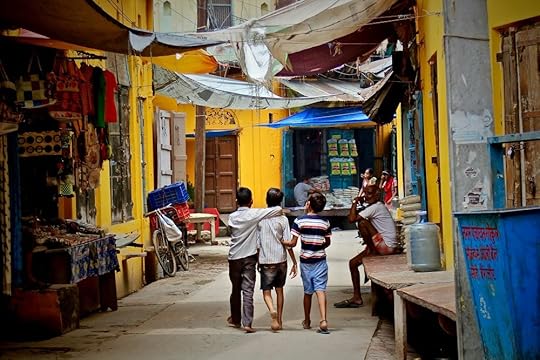
Here’s what Trevor’s story taught me.
1. Begin where you areTrevor got his start when he was at seminary among Cambodians who had fled the murderous Pol Pot regime of Cambodia. The Khmer Rogue had killed anyone with an education. These refugees were simple-minded village people. Or at least that’s what they appeared to be.
These new believers were uneducated but smart, resourceful and committed. They were deep in their understanding of the Scriptures and actively engaged in making disciples. Lacking formal education they made good church planters. Working among immigrants gave Trevor his heart for Asia.
Eventually, he found his way to Asia as a professor at a seminary with a difference. Students spent the week in classes and the weekends out sharing the gospel, making disciples and planting churches. To graduate you had to plant a church with twenty-five baptized new disciples.
Trevor became a mentor to the students as they faced challenges in planting churches in a Muslim nation. As they wrestled with the roadblocks, Trevor watched and learned.
2. Move towards the gaps then watch and learnHe soon noticed a gap in the church planting strategy. They were making progress among the majority population, but not among unreached people groups (UPGs).
So he set up a mission organization to target the gaps and recruited students to go after them. He hired students to do two-week cultural surveys of the UPGs and filtered them based on their behavior. He was looking for people who were better at evangelism and disciple making than he was.
From that pool, he selected four students and sent them out to hard places and hard people groups to reach. One of the students objected, “But we don’t know anything!” Trevor replied, “When you learn something let me know.”
In the early days, a breakthrough was one or two new disciples from an UPG.
The students tracked the breakthroughs and identified fruitful practices.
They discovered that offering prayer was an effective way of connecting with people.
The Islamic leaders would write out Quranic verses on paper, pray them and then burn them and give the ashes to the person to drink.
One church planting couple tried writing out Scriptures and praying them over a glass of water. The person drank the glass and was healed. They modified a cultural norm and added Biblical content.
The planters discovered that praying the Bible over the sick resulted in an open door for evangelism that led to discipleship. What they were seeing in the field was matching patterns in the Gospels and Acts.
Another effective approach they discovered was to ask Muslims, and even religious teachers, “Have you ever experienced God?” Culturally, it was a strange question to ask. They’d answere, “No” and then reply, “How do you experience God?”
They wanted to know how to experience God in the everyday challenges of life. When they faced illness or demonic oppression, they had nowhere to turn.
An encounter with God in Jesus’ name was a far more effective starting place than an antagonistic debate. They become convinced that somehow Jesus is Lord and then go on a journey to understand what that means.
3. Follow that relationship!Another lesson they learned was reaching groups, not just individuals.
One of the workers was the first to get to three discipleship groups. He was convinced the most effective method was to disciple individuals, partly from security concerns. Other workers went after groups of people. Their progress was slower, but after six months, they began to reproduce while the one-on-one guy never went beyond three and had dropped back to just two groups.
Trevor discovered in this culture people don’t do things one-on-one and secretly. If it’s secret and private it’s considered shameful.
From that point they decided, to target groups. For instance, the young men eating boiled peanuts in the cool of the evening while they strummed their guitars and sang. They trained the disciples to talk about the gospel in natural groupings of people whether they were friends or relatives.
Discipleship and church planting begins with those gatherings of people discussing the Bible together.
Trevor says the book of Acts uses the word “ecclesia” three ways: the small gathering in homes, the church across the city and the church throughout a region. We need each form of church.
4. If it’s fruitful, keep goingWe created an experimental culture. The experiments had to be low-cost and low-risk. They would set them up and then watch and learn.
For instance, they had a twelve-month program for training workers. We had good trainers and selected the best candidates, none of which worked out. It wasn’t fruitful. But they were invested in that program and Trevor was reluctant to end it.
Then one of the local leaders came to him and said, “We need to shut this down, it’s not fruitful. Our purpose was not to run trainings but find the right people.”
He wanted to replace four months of training with just one or two days of training.
So he went to a strong missions church of 400 with a heart to reach Muslims. He asked them to pick 10% of the church most likely to reach Muslims. Then he gave them just one day of training.
Out of the 40 he trained, he found just four who took the training and applied it in the field over the next few months. They kept reporting in and asking for more coaching. Now he’d found the right people, and began training them as they reached Muslims.
Across twenty churches, in every case the total number of Muslims reached and discipled is more than the original size of the sending church. If the church was 400, there would be more than 400 in the underground churches.
They learned the purpose of training is not training but to find the right people and apprentice them in the field.
5. You can have your cake and eat it tooTrevor said, We often hear, “We want quality not quantity”. Show me the verse that says we don’t want quantity. The book of Acts reports on quantity and quality.
I grew up on a farm, I never heard an apple grower say, “I want quality not quantity.” I never heard a dairy farmer say, “I want quality but not quantity.” No farmer says that.
They all want both. They know quality and quantity are related symbiotically.
That’s why we’ve made such good progress towards a multiplying movement of disciples and churches. But I'm not going to discuss the numbers. But it has been a surprise.
Almost every quarter when the counts come in, I have to cry, I have to weep about what God's been doing.
August 17, 2024
Anyone for Chai?
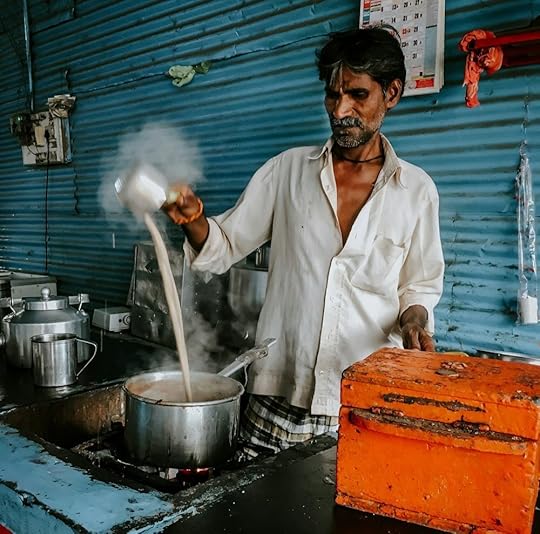
I was traveling in South Asia last month. We had a twelve-hour drive broken up with stops for chai — tea made with buffalo milk, spices, ginger, and lots of sugar all boiled up together.
We were finishing up when DJ said give me a few minutes. He goes over to the owner and announces, “I’m a follower of Yeeshu Maseeh (Jesus Christ). We pray for people and we teach the Bible. Can I share my story with you?”
He shares his story and prays for the owner’s family. The owner is intrigued and wants to know more so DJ pulls out a microSD card and gives it to the owner to load on his phone. Then he shows him how to use it. He can listen to the Bible stories and watch the Jesus film with his family.
DJ promises to call the next week and see how he is doing and answer any questions. He tells him, “Watch the film with your family, listen to some of the lessons, then we’ll talk.”
As they speak there were five men and boys standing around and listening. He asks the owner about his family, his village, father, mother— everything. His village is near, so next time he’s on the road DJ can visit his village and meet his family.
The whole interaction took less than twenty minutes. DJ wasn’t looking for an easy convert but an open door into a household as an open door to a whole community. He’d given the owner something to think about and something to do. DJ will follow up with a phone call and if the owner is open, a visit to meet his family.
I watch this scene unfold and the first thing I notice is DJ, rescued by God when he was a teenager from the tyranny of Hinduism and domestic violence. Devoted to the gospel, convinced of its saving power, ready over a cup of chai to tell his story and invite someone to learn more. Yes, he’s a leader and should know what to do, but he’s the leader of thousands of ordinary people who are doing this every day.
That doesn’t describe many Christian leaders and believers I know in the West.
Watching on the whole time is Gary, the seminary-trained Westerner, he came to South Asia twenty years ago sto find leaders like DJ. He prayed, “Lord can’t you trust me with more than just one guy?” No, but to that one guy, God entrusted a movement of disciples, leaders and churches.
In a movement leaders are not known for their ministry, their preaching, or their oversight of others, they are known for the workers and pioneers they launch.
Another thing I noticed was DJ didn’t wait until he’d “earned the right to speak”, Jesus had already given him all the authority he needed. The Bible has a word for it — “boldness”. Not brashness, not rudeness but free and uninhibited speech. That’s another difference I notice with leaders and believers back home.
Someone will read this and say, “It’s obvious he’s an evangelist, not a shepherd.” No, he’s a shepherd who, like Jesus, left the 99 to go after the one. That’s what it takes to see a movement of God that will sweep regions of the world numbered in billions of people just like that chai shop owner, his family and community.
August 14, 2024
332-Trevor’s Story
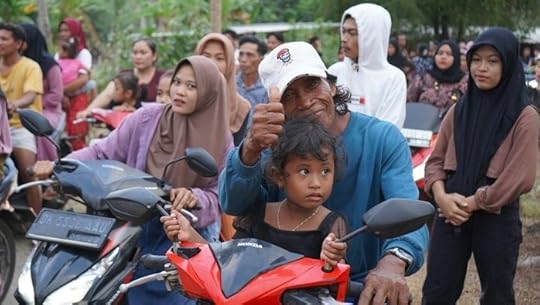
A conversation with Trevor about the rise of a movement of disciples and churches somewhere in Asia.
July 28, 2024
On the road in South Asia
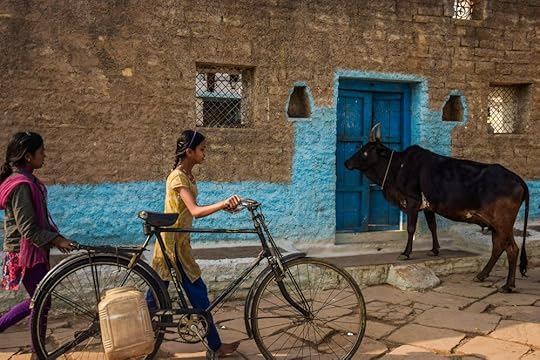
We’d been on the road in South Asia for three weeks. We’d covered thousands of kilometers and met hundreds of people. The purpose was to hear their stories and experience the life of a movement of God.
We had a ten hour drive to get back to base so I hit record and used the time to interview my hosts Gary and DJ. Here are some reflections on what I learned from the trip and our discussion.
I kept hearing the same story over and overSo many times we'd be sitting in a courtyard or in a room where there was a fan going as it was hot outside. Someone came to us and told us their story of meeting Jesus and offered to pray for us.
We kept hearing the same story over and over again. It went something like this, My husband was a drunkard and lazy, always angry and oppressed by demons. We were miserable. Someone visited offering prayer and he was set free. Now we are learning to follow Jesus and there is peace in our home. My husband listens to me, takes an interest in the family and even helps with jobs around the house! Now he’s motivated to work and our lives are much better.
I got to know some of these angry, drunkard, demon possessed men and despite the language barrier, I could see they were now godly men full of the life of Christ.
Another recurring theme was healing, Our child was desperately ill. We had lost all hope that she would live. Then there was a knock at the door and the offer of prayer. God healed our daughter and now we follow Jesus. Many of our relatives and neighbors follow him too.
Typically there was a problem with alcohol, demonic oppression, sickness and family conflict. People were miserable and found no consolation in Hinduism. Then someone arrives at door, a relative, a neighbor or someone they’d never met before sharing their story and offering prayer.
They experience the power of God and turn to Christ.
I met an elderly woman whose husband died. She had no children to support her and her husband’s family abandoned her by the side of the road to die. The disciples found her and took her in. They fed her, brought her back to health and found her a place to live. She heard the gospel through them and is now following Christ and going out in pairs to tell others about him.
Reaching householdsThe movement doesn’t target individuals but whole family networks in their homes. Even if the head of the house isn’t responsive they still want to meet in the home so he gets to hear and give at least passive approval to the whole household hearing.
Often you’d look around the room and there’d be three generations present. An extended family household could include more than a dozen people living under the one roof. Other relatives were living nearby.
The entry method is simple — go in pairs, knock on a door, share your story, offer prayer — any believer can do it. The purpose of the visit is not to gain a convert but to invite the household to read stories from the Bible together.
Technology as a multiplierWhat happens next is unlike anything I’ve seen before. The messengers come with inexpensive micro-SD cards with an audio version of the Bible and the studies in the local language. There’s also the Jesus film in the local language. Even if the messengers are illiterate, which some are, they can still listen to the Bible stories and do the studies together.
Most families have a least one basic phone that will take the SD cards and play them.
The messengers will load the SD card and show how they work and set a time when they can return and go through the first study. Having the resources in audio format means any believer can help a household through the studies that are designed not just to provide content, but lead to obedient discipleship.
There are 35 studies that begin with creation and end with Christ. They could be spread over 35 weeks, but many households move through them much faster. Even if the messengers can’t be there for every study, the family reports in and discuss what they are learning either over the phone or when they meet.
Why so many studies? There is a deeply entrenched Hindu (or Muslim) way of seeing the world that needs to bow to the One True God revealed in the Scriptures and that takes time. The studies don’t target other religions but present the Biblical story in a positive way and allow participants to make their own decisions about the implications.
Typically, it’s one household at a time going through the studies as multiple households at once get out of sync with each other.
Sixty percent of households that begin the studies don’t complete them on the first attempt — but 40% do.
Discipling to conversionSurprisingly the call to repent, believe and be baptized does not come until after the 35 studies are completed. That call is the first study in a series on discipleship. Sometimes not every member of the household is ready for repentance and baptism, but they have been involved in the process has led to some members following Christ. Their involvement means that the gospel is far less likely to divide families.
Immediately they are baptized, new disciples are trained and commissioned to go to other households to tell their story, offer prayer, an SD card and opportunity to read the Bible together. When they are baptized, new disciples learn that Jesus’ baptism marked the launch of his mission.
Until now things have moved slowly. One household has completed 35 studies from Creation to Christ. Then following their baptism, begun a new series in discipleship. Typically the messengers journey with a family for six months to get them established in their faith. They stay with the new disciples until they are confident, competent, and independently able to share what they have learned. If it takes longer, they stay longer.
Going slow to go fastThe assumption is, that not everyone is a gifted evangelist, yet every disciple is called to make disciples. That includes elderly, illiterate widows, and one young woman who began visiting with her father when she was twelve. In her early twenties now, she’s bold as a lion.
They’ve been sharing what they are learning as they go through the studies. Now they are commissioned to go to their relatives and neighbors as missionaries. An assessment of the movement revealed that a staggering 79% of disciples do just that. The movement goes slow in order to go fast. In the first year 200 people took baptism, the next year it was 700, then 2,000, 9,000, 20,000 and 40,000.
The SD cards are a simple, biblical and effective method that multiplies the movement’s breadth and depth. But this is not a movement of the SD card. This movement is fueled by the joy of the Lord in the hears of ordinary people who have been set free from demons, death, sin and the devil. I saw the love of Christ in them. They’re growing as disciples because they are making disciples.
I met a number of disciples that were going into six, ten and twenty villages. In each village they had started multiple new churches. As we drove into some of these villages my host would say, “We have a church in that house. We have a church there. We have a Bible-study just beginning in that house …” as they waved to the faces they recognized along the way.
Near and farThe disciples have a vision to take the gospel to “near and far.” Near means their neighborhood or the next village. Far can mean to villages hundreds of kilometers away.
I met an extended family of farmers made up of grandparents and the families of three brothers. The brothers decided one of them would go to a far way location where there were not disciples or churches. One left his family behind to go for three months. During the day he worked as a farmer, at night he shared the gospel and made disciples and planted churches. While the families back home supported him and wife and children back home.
No outsider told them to do this, there was no external funding, just a determination to obey Christ’s call to take the gospel to every people and every place. This story was the norm rather than the exception. That’s why over 95,000 churches meeting in homes have been started and hundreds of thousands of disciples made who are making disciples.
Find out more: southasiansands.wixsite.com/ekrasta
July 16, 2024
A retirement plan

Ever wondered what you’ll do in your retirement? This report just came in from one of my heroes, who is a least twice my age.
After a long haul flight and a long drive through the night, he listens to reports of the gospel going out to families and villages resulting in new disciples and churches.
The majority faith is Islam deeply rooted in ancestral spirits, local spirits, powerful witches and other spiritual practitioners. Effective evangelism in the area normally involves delivering persons from these with focused prayer of up to five hours.
All believers attending the training are fully self-supporting. The one meal a day provided was large enough that they could take portions home to their family since day laborers and fishermen were unable to earn income on the training days. Two of the men walked daily five hours each direction to attend.
A significant movement of God in a remote region of Africa.
It sure beats playing golf.
July 12, 2024
Flying home from Katmandu

I’m through security and ready for the flight to Melbourne. I’ve been on the road in South Asia for three and a half weeks on the road.
I’m ready to go home and hug the grandkids and walk the dog, but this trip has changed me.
For more than three decades I’ve read everything I can on movements, and I’ve interviewed hundreds of practitioners — nothing beats being in the field, face-to-face with first-generation believers pursuing multiplying movements of disciples and churches.
We drove thousands of kilometers and met hundreds of people, I never grew tired of hearing their stories — how the gospel came to them and their families. How the sick were healed, demons cast out, alcoholic men freed to love and serve their families. How salvation came to multigenerational households, their neighborhoods and nearby villages and how they sacrificed to take the gospel to faraway places.
I never grew tired of hearing this story time and time again. The gospel is on the move in South Asia and everywhere it goes in the power of the Spirit, the fruit is always disciples and churches to the glory of God.
Why should we be surprised? Isn’t that the story of the movement of God in Acts?
July 5, 2024
331-On the Road in South Asia

A conversation with Gary and DJ on a multiplying movement of disciples and churches somewhere in South Asia.
June 13, 2024
330-Kiran’s Story

When you watch or listen to this interview you’ll be gazing into the future. The future of world missions is Nigerian, Brazilian, Chinese, Indian, Persian and in this case, Nepali.
May 29, 2024
329-Getting Started in Canada
A conversation with Liam Wilson and Isaiah Bennet about multiplying disciples and churches in Canada.
May 28, 2024
329-Getting Started in Canada
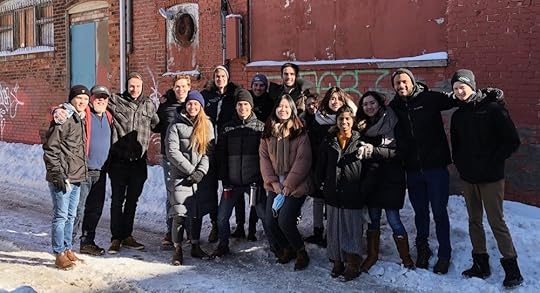
A conversation with Liam Wilson and Isaiah Bennet about multiplying disciples and churches in Canada.



